Can we cure anti-vaxxers’ fear in time for a coronavirus vaccine?
As scientists around the world rush to find a vaccine, age-old fears, scepticism and mistrust are giving a third of Britons pause. Evie Breese speaks to some of the people who would refuse a vaccine, and the health professionals hoping they can change their minds
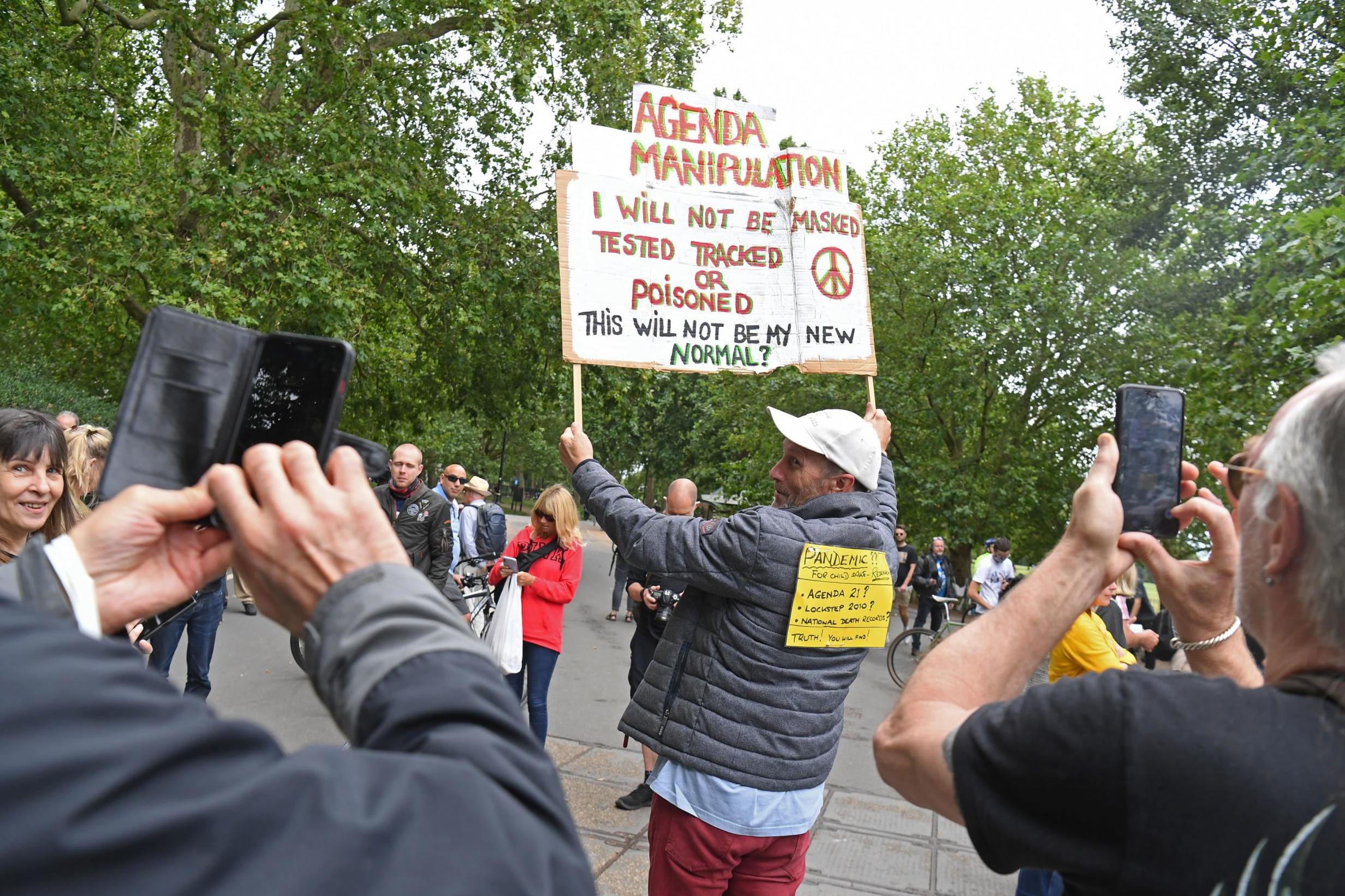
Ed had never questioned the government. He even voted for them. During the Brexit debate, he was “a bit 50/50”, explaining that in his view, “once we decided we were coming out, I thought that was it. If you live in a democracy, you have to go with the general view.”
When Ed and his family holidayed in Vietnam and Morocco, they didn’t bat an eyelid at the necessary vaccinations. “The biggest issue was how brave (the children) were going to be while having them,” he recalls. “Which turned out to be not very!”
But in recent months, Ed, who is in his fifties and works in social housing, has completely changed his view of the British government. It was after seeing drone footage of people breaking lockdown guidelines in the Peak District, posted online by Derbyshire Police in an act of public shaming, that the Yorkshireman started to feel uncomfortable.
Concerned by the increase in state powers, suspension of trial by jury and increased surveillance, Ed joined the Facebook group UK Lockdown Sceptics to find others who shared his fears, where his suspicions only grew. Ed is not his real name: he wishes to remain anonymous.
He now believes that the public have been lied to “on an industrial scale”. He and his wife have chosen to opt out of organ donation, blood donation and are certain that they would refuse a coronavirus vaccine.
On the Facebook group, he has seen “some suggestions that new vaccines might be chipped, with some sort of tracing mechanism, in the same way as my dog is chipped”.
But surely he doesn’t believe that, does he? “I don’t know,” he replies, throwing his hands in the air in exasperation. “When you lose your faith in a system that you’ve always trusted… somebody is gonna have to build your faith back up again.”
At the peak of the coronavirus crisis in the UK – the week ending 17 April 2020 – the chance of a Londoner dying was almost 240 per cent higher than in previous years. England has had the highest rate of excess mortality in Europe. More than 41,000 people in the UK have lost their lives due to Covid-19.
Yet only half of all Britons are committed to taking a coronavirus vaccine, with young people the most likely to reject it. According to a study by Kings College London, more than 20 per cent of under-34s said they will definitely or are likely to reject a vaccine, compared with only one in 10 of those aged between 55 and 75. Nearly half of us believe the virus is “man-made”, according to a poll commissioned by Hope not Hate.
This is in a country considered to be a world leader in childhood vaccinations, where a 2017 study found that only 2 per cent of parents reported refusing vaccines for their children, and flu vaccine uptake in people over the age of 65 is around 70 per cent.
So how did Ed, a family man with a measured stance when it comes to politics, get sucked into a dystopian world where vaccines could be camouflaged as tracking devices?
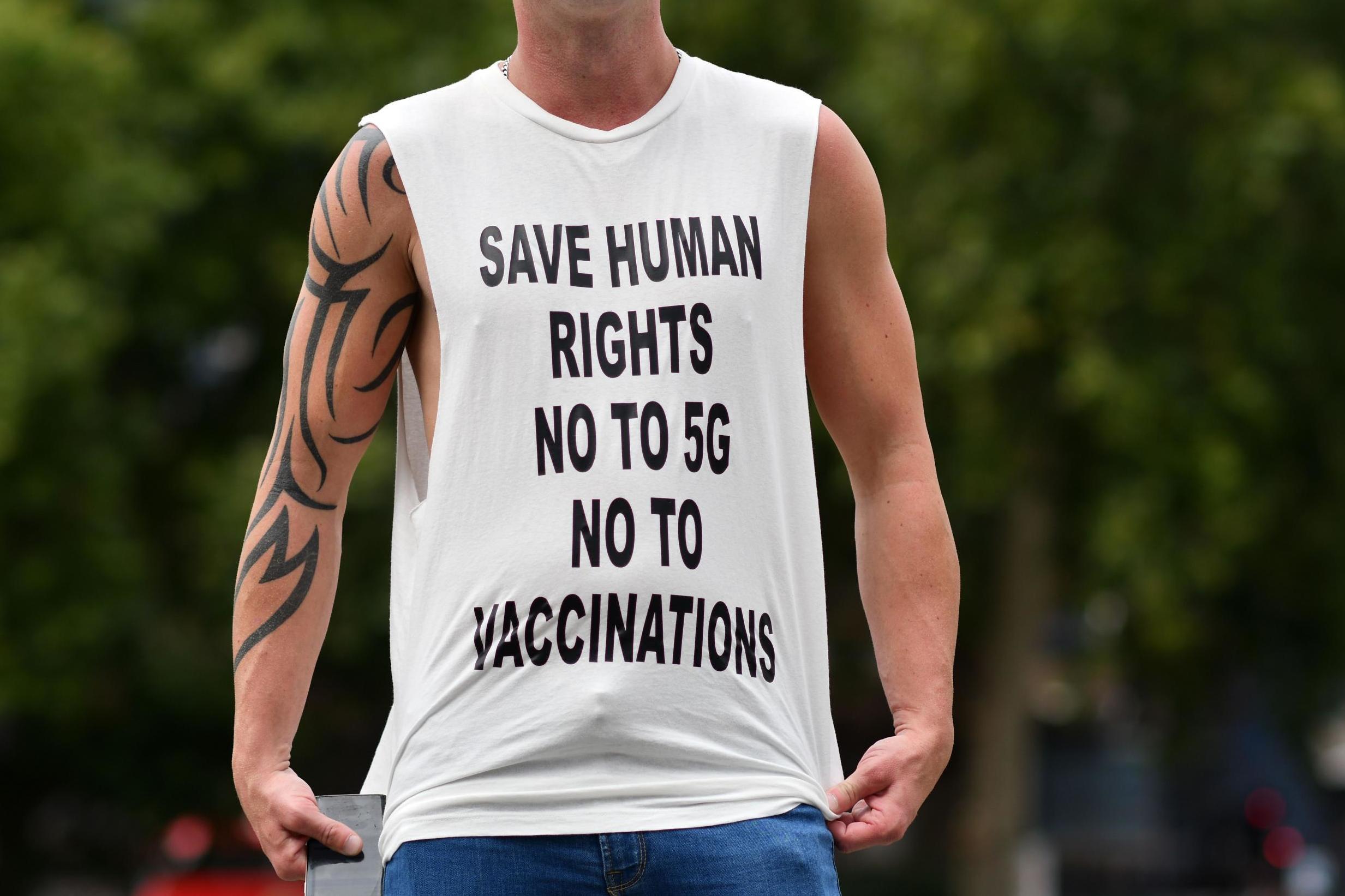
Muzi Mandlazi has mostly used the lockdown to work on his modelling and musical ambitions, though he has also found it supremely boring, given that not all his friends share his views on social distancing. He has happily shared photos on Facebook of himself with friends having a barbecue even during the most severe period of the lockdown. He is “extremely sceptical” about the severity of coronaviruses, and “the general severity of the whole situation… it’s blown completely out of proportion”.
Not only does he believe that the number of deaths from Covid-19 are inflated and that there’s no real need for a vaccine, he believes trials for a coronavirus vaccine started in 2014, with big pharma pushing a narrative of a global pandemic to line its own pockets with sales of a vaccine. Like Ed, he also believes a potential vaccine could contain a chip to “locate your system”.
In some ways, the South African-born 27-year-old is a classic conspiracy theorist; in fact, Muzi embraces the label, viewing it as signifying an “idea that isn’t followed by many”.
Mandlazi has always been drawn to theories from fringe media sites, YouTube channels and internet forums, preferring instead to do his “own research” rather than believe what is published in the mainstream media, which is, in his view, “100 per cent withholding information”. He cannot say what the agenda is: “I don’t know why they want everyone to have this damn vaccine… but clearly it’s something else.”
Some of their concerns are quite, you know, legitimate. And we’re not coming to terms well enough with that as a public health community
Mandlazi describes himself as an “open book”, and is smiling and earnest as he describes NHS staff as “absolute stars, they do what they have to do… bless them, they’re stretched to the limit.” Young, educated and well-travelled, he is far from the stereotype of either basement-dwelling trolls or middle-class mummies in Tunbridge Wells, though hints of narcissism are hard to miss.
While some people have long lent on conspiracy theories as a way to explain the complex and often inexplicable world they find themselves in, the unprecedented stress and upheaval of the global pandemic may have pushed more and more people towards conspiratorial explanations.
“It may sound kind of wacky, but it adds a solution to what has happened, it makes people feel better,” explains social psychologist Dr Daniel Jolley. Conspiracy theorists tend to see themselves as the real critical thinkers who can see patterns others are blind to, Dr Jolley says.
Dr Jolley explains that if a person believes in one conspiracy theory, they are likely to be drawn to others, whether or not they are mutually exclusive. A conspiracy theorist can claim to believe that coronavirus is caused by 5G, while simultaneously believing that it is man-made. But while these theories give a sense of certainty in the answers they appear to provide, this is only temporary.
But is everyone who might reject a coronavirus vaccine – a third of the British population – a conspiracy theorist? Certainly not, explains Dr Heidi Larson, founder of the Vaccine Confidence Project, though doubts may be more common than we would like to acknowledge.
Fear of potential side effects is the main deterrent, she says. It’s a fear most new parents can relate to. Dr Larson’s life’s work has been centred on myth-busting around vaccines, but she is surprisingly quick to admit that, yes, “vaccines do have their risks”. She continues: “Some of their concerns are quite, you know, legitimate. And we’re not coming to terms well enough with that as a public health community.”
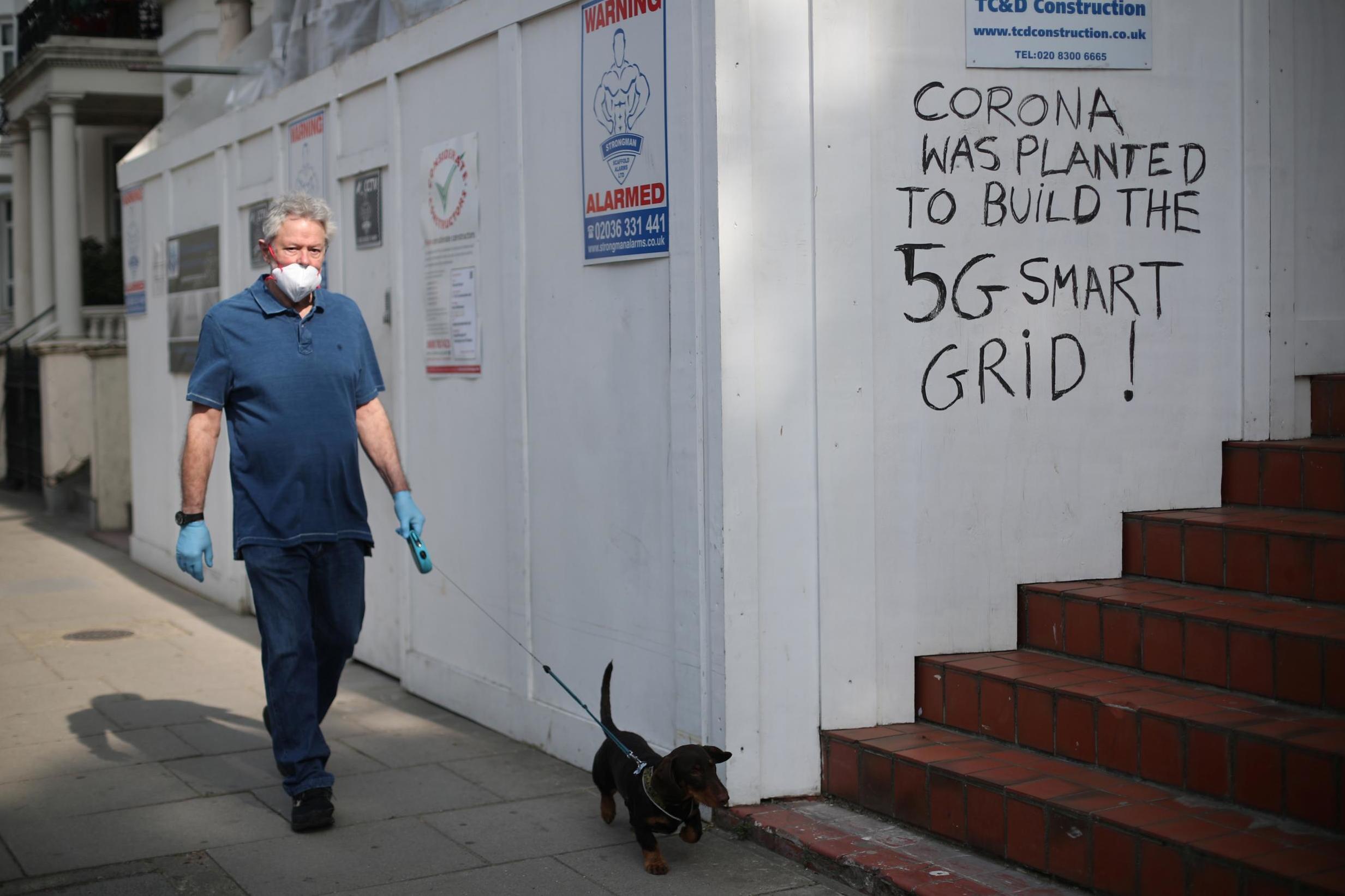
As death tolls rise and economies are brought to a halt, governments around the world have been united in a quest for a vaccine, with health secretary Matt Hancock declaring that the UK is “throwing everything” at developing one, and Donald Trump declaring a “warp-speed” effort to create a coronavirus vaccine by year’s end. Such a sense of rush has sown seeds of doubt over safety. “I don’t want to be a guinea pig,” says Lee Story, in his seventies, a father of two grownup children, based in Tunbridge Wells.
This is a sentiment that is often brought up in discussions around a coronavirus vaccine, a fear that the first batch could be faulty, leading to unknown side effects. And it’s not ludicrously far-fetched. Born in 1949, Story was part of the first generation to see the horrors of polio, making coronavirus the second epidemic he has lived through. Story’s parents were given a choice, to take a gamble on the new vaccine, or risk a disease that was resulting in up to 7,760 cases of paralytic polio each year, and up to 750 deaths
In a terrible twist of events, Story contracted polio due to the vaccine he was given, though only “mildly”. For six weeks, he was in isolation in hospital, and remembers “this plastic curtain, so you could see your folks through”. It may sound shocking to describe six weeks in hospital as a mild version of the illness, but this was a mysterious disease that paralysed and sometimes killed young children, leaving others unable to breathe without an iron lung which entombed their body.
After the introduction of the Salk vaccine in 1955 and the routine immunisation that followed, there hasn’t been a case of polio in the UK for over 35 years. Until 2004, the vaccine used was a live but weakened version of the virus, which is what Story received, and did result in a very small number of recipients developing the disease itself (30 cases in the UK between 1985 and 2002). Story was mind-blowingly unlucky.
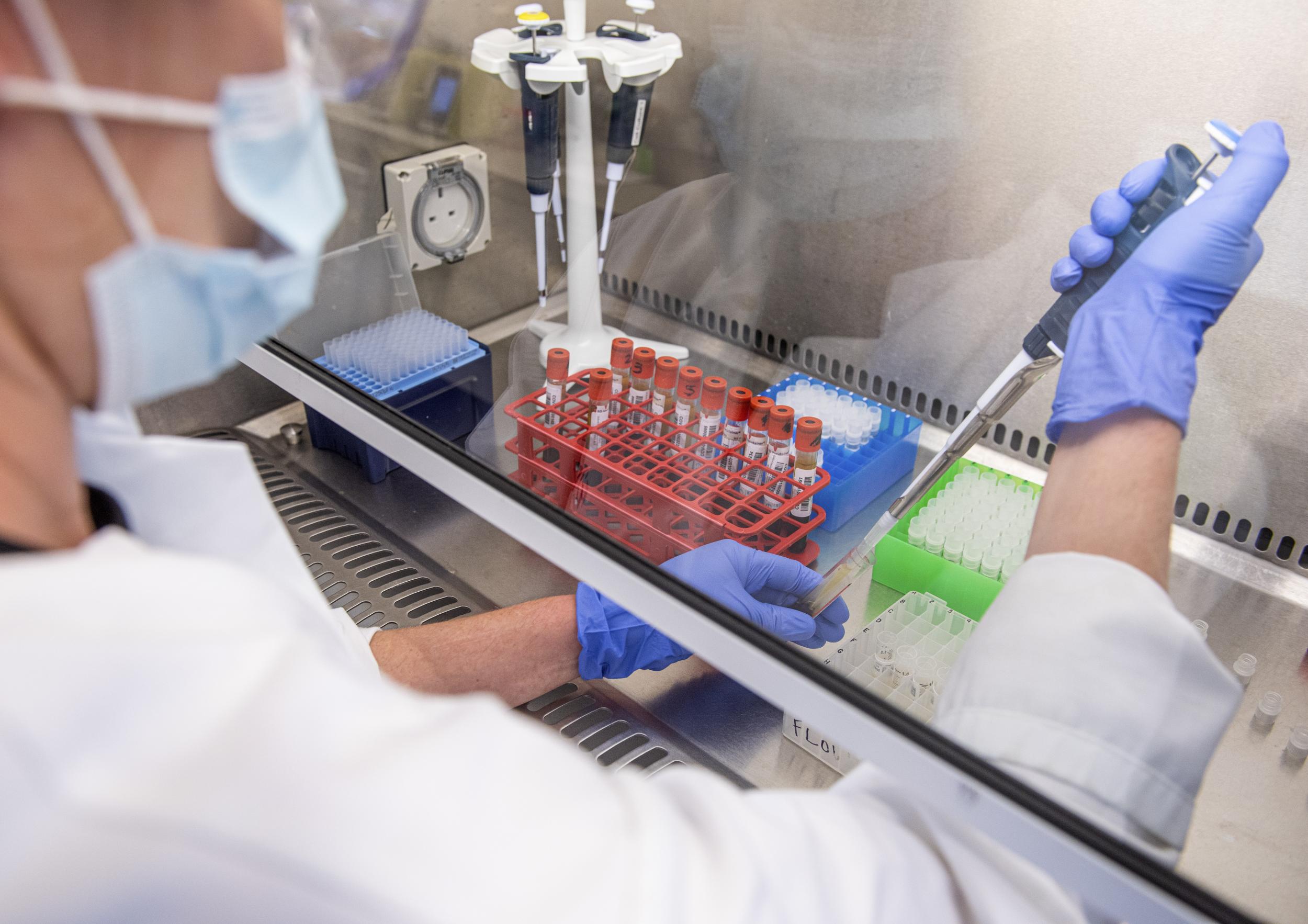
The success of the polio vaccine seems almost to its own detriment. David Oshinsky, the author of Polio: An American Story, believes that due to the eradication of so many deadly diseases, the anti-vax movement has gained ground as people forget how common, and how deadly, these diseases once were.
Due to his age, Story is in the vulnerable category, and his daughter, Ellie, describes this time as “scary” for their family. So if and when a coronavirus vaccine does become available, Ellie assumes her dad would get it. “And my mum won’t bat an eyelid,” she says.
A third
of the British population would refuse a coronavirus vaccine
But this is a conversation that Ellie has clearly not yet had with her mum, Sue, a strong advocate for holistic medicine after she believes it cured her eldest child, Ollie, of a persistent cough. He was a sickly baby, “constantly croupy, a type of wet cough, sticky on the lungs”, yet after receiving a bottle of pills from a homeopath who suggested that the MMR vaccine may have caused the cough, Sue swore that no child of hers would be vaccinated again.
“I think these people in Oxford who are volunteers for the trial, they deserve a medal,” she says, earnestly. “They’re either the most brave people, honestly, on the planet, or the most stupid because I think the risks that they’re subjecting themselves to, that literally makes me come out in a sweat.”
Dr Larson doesn’t dismiss this fear. She explains that “when scientists say quick, they mean quicker than the usual four to eight years or whatever. But it doesn’t mean that it’s too quick. Nobody’s going to cut corners on safety.” Researchers around the world are developing more than 165 vaccines for coronavirus, with the vaccine developed by Oxford University appearing to not only be safe, but to successfully trigger an immune response. But to some, it seems too quick. Paramedics work with a sense of urgency, but do we accuse them of cutting corners?
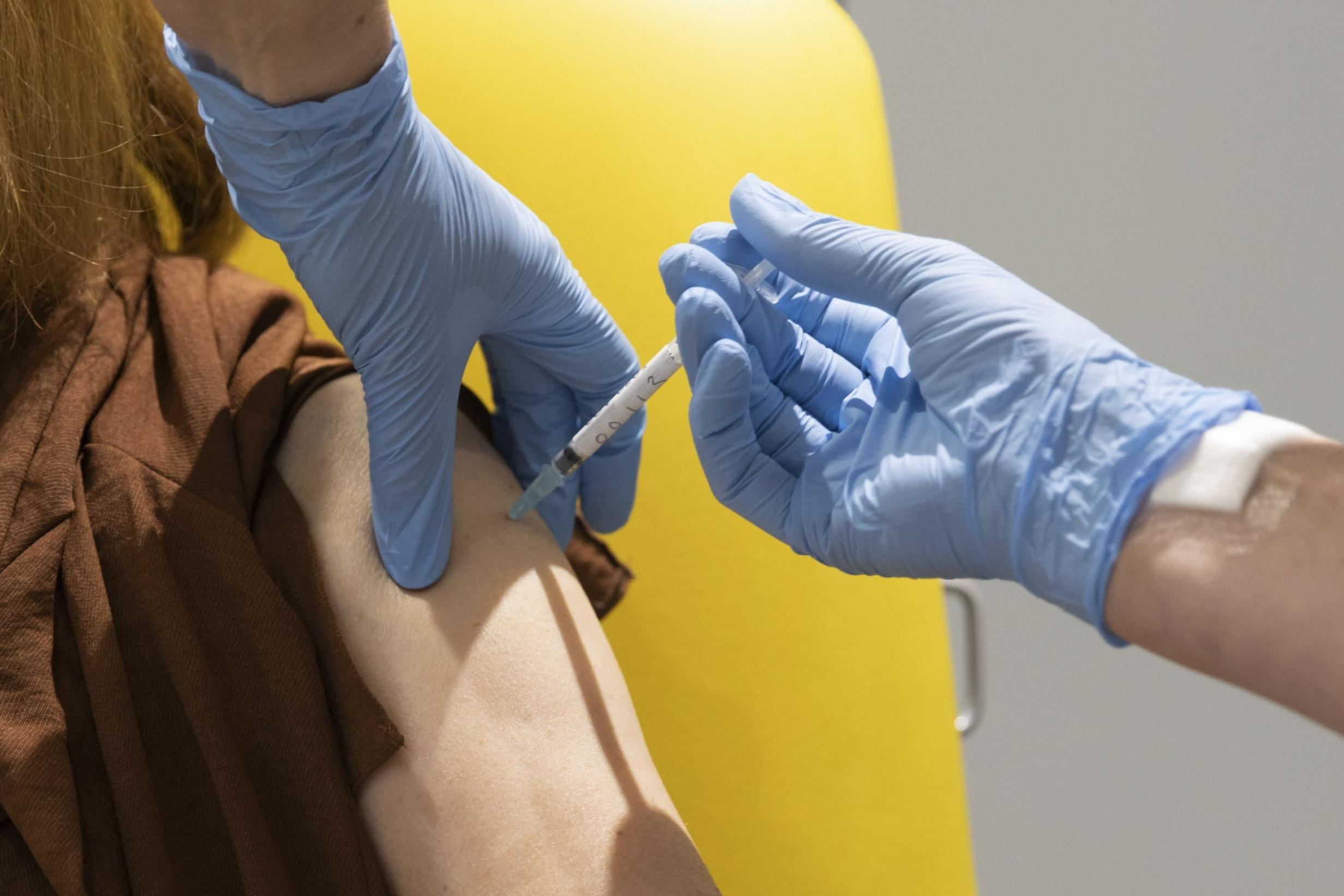
The problem is that when people are on the fence, they are often driven to more extreme and conspiratorial ideas if their concerns are not assuaged with factual information from a source they trust.
And there’s no one more on the fence than our fourth Story, youngest child Ellie, who works as a teaching assistant at a special needs school. True to her word, Sue never had Ellie vaccinated, even refusing her the cervical cancer vaccination as a teenager – something Ellie angrily battled for at the time. Her parent’s decision not to vaccinate her as a child was “risky”, but she doesn’t hold it against them.
Yet, in the six years she has been a legal adult, she hasn’t booked an appointment. Perhaps her mother’s fears have seeped into her subconscious more than she has realised. She is torn between her obligations to her mother, whom she disagrees with but loves and respects, and her obligations to a society complete with vulnerable people, whom she sees as her duty to protect. And that might mean being vaccinated.
I think these people in Oxford who are volunteers for the trial, they deserve a medal. They’re either the most brave people, honestly, on the planet, or the most stupid because I think the risks that they’re subjecting themselves to, that literally makes me come out in a sweat
So if push came to shove, would she take a coronavirus vaccine? “I want to say, ‘I will get it.’ But it does take some thought with me, and… but… I’m definitely more…” she says, her eyes darting around the room as she tries to string her thoughts together. “I can definitely say that I would think I’d definitely get it more than wouldn’t,” she says, her own uncertainty curling around her words.
As lockdown is eased further and further, with individuals now only required to stay one metre apart and patrons returning to sip pints in pubs, peruse the shops and rejoin the commute, it seems that for most people, at least, life is returning to normal, albeit a “new normal” with masks and hand sanitiser at every turn.
But a segment of the population is still straggling behind. The UK’s shielders were released from their homes from 1 August. But at the end of May, people with cancer, liver disease or severe asthma were unceremoniously dropped from the government’s coronavirus shielding list by text message, before their doctors had been able to speak to them.
Charlotte Hutton is one such shielder. A self-described “hugger” and mum of two children under 10, Hutton has left the house a total of three times since mid-March, when she and her architect husband preemptively made the difficult decision to withdraw their children from school. Near the quaint seaside town of Matlock Bath in Derbyshire, the parents are able to work from home in shifts while also home-schooling their children.
“The school were brilliant,” she recalls, “because they know I’ve been hospitalised a few times, and I’m not just being paranoid.” Four years ago Hutton, a principal solicitor for a local authority, was hospitalised with a chest infection, but as her immune system went into overdrive and she started fighting for breath – “at death’s door basically” – it became obvious that this was more than an asthmatic episode.
The illness left her so weak that she was confined to a wheelchair and could hardly lift her one-year-old son for a cuddle. Hutton has been left with severe asthma, bronchiectasis and adrenal insufficiency due to the steroids she has had to take to control the lung condition. She doesn’t know for certain that she would die, but “I’m 39, and I have two children and I don’t want them to lose their mum,” she says.
Though only little, her two children have known for the past four years that there are germs out there that can make their mum very sick, so washing hands and avoiding parties hosted by a sniffly birthday girl is the norm.
But with coronavirus being a severe acute respiratory syndrome, the potential consequences are more extreme. At some point, though, the children will have to rejoin society and live with the burden that they could infect their mother with an illness that would likely kill her. This is what causes Hutton the most distress. “I know we probably can’t stay in completely until there’s a vaccine, but I think the vaccine is probably my best – or our – best shot.”
Giving people the facts about how vaccines are made, may give them the answers they need before they engage with conspiracy theorising.
While it is unclear whether those who have already been infected with the virus can become reinfected, Oxford University vaccinologist Sarah Gilbert – who is working on the development of a vaccine – thinks that it is likely. From what we know about other coronaviruses, immunity is not very long-lived. “If someone has been infected, they will be able to be reinfected in the future,” she explained in an interview with Andrew Marr.
What is particularly attractive about a vaccine, however, is that vaccine-induced immunity lasts a lot longer than the infection-induced immunity. Professor Gilbert explains that “with vaccination, we get immune responses that are there at a good level for a year”. The UK might have to endure five or six waves of the virus as it continues to resurface, unless a vaccine is found.
So who are these heroes, or stupid fools, volunteering to be human guinea pigs for a vaccine?
At the peak of the pandemic crisis, George recalls his fear for his parents, in their sixties and seventies. He forbade them from leaving the house until the infection rate had decreased. “I told them that if they get it, we’ll have to say goodbye to you on Skype, and we all know you’re bloody rubbish at using technology, and you’ll have to choose which of us gets to come to your funeral because you’ll only be allowed two,” he recalls, with the black humour of a paramedic who has held the phone to the ear of an elderly man, suffocating on his own secretions as he dies from Covid-19, to allow his niece to say goodbye, reassuring her, “oh I saw a flutter in his eyelashes, I think he heard you”, knowing full well the man was already unconscious.
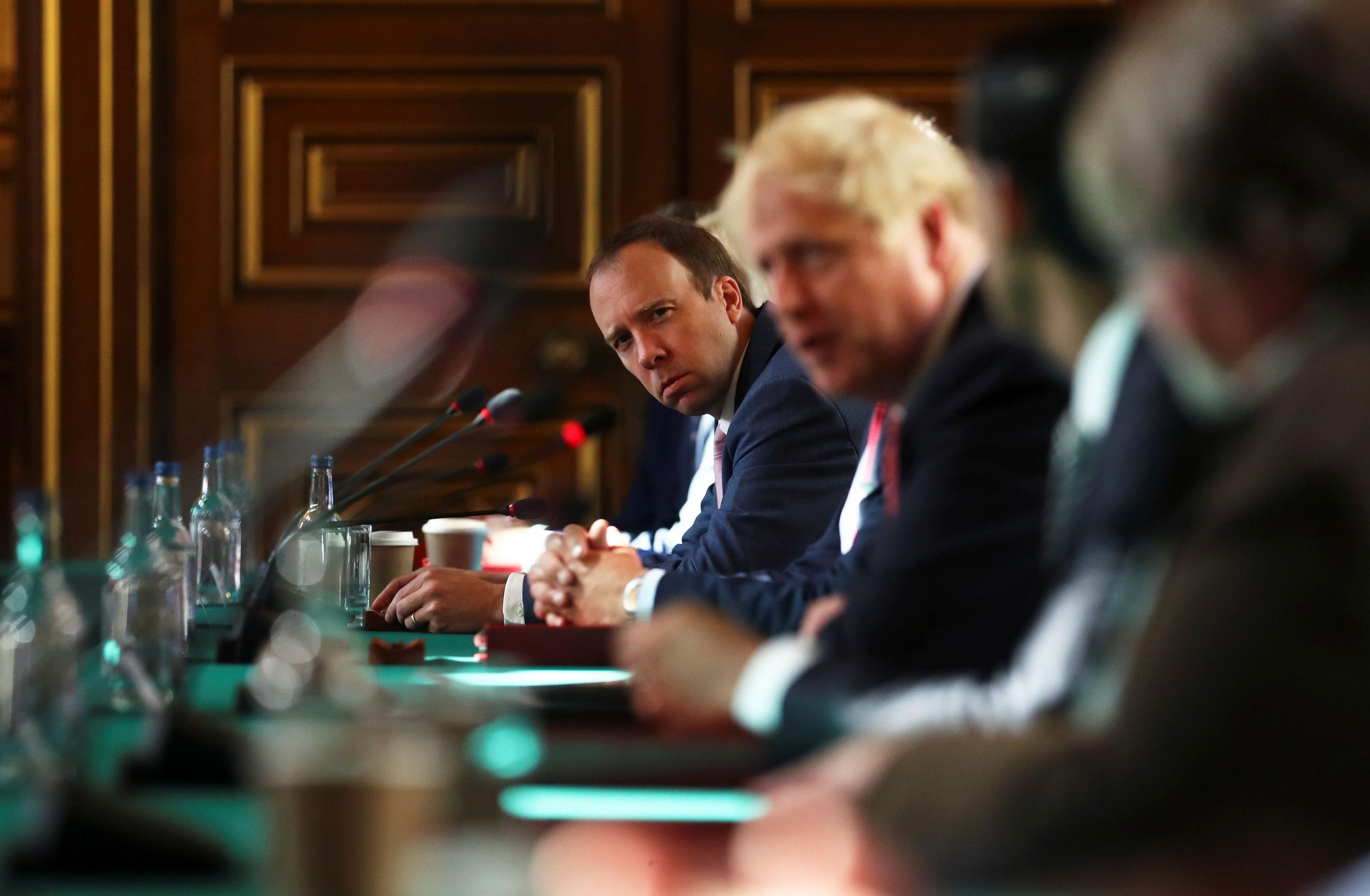
But it wasn’t this imminent fear for his own family, nor his experiences working on Bristol’s front line in the fight against the deadly respiratory disease that led George to sign up as a volunteer in Oxford’s coronavirus vaccine trial.
“I think it’s this sort of civic duty for well people to help out unwell people,” explains the healthy 27-year-old, who requested he remain anonymous to prevent identification by future patients. For the trial, he was given a single injection, either of the new vaccine or a placebo made of the meningitis vaccine, and takes a weekly coronavirus test via post.
As the vaccine was being injected, George didn’t feel worried: “It’s a very, very well controlled thing. So no, I wasn’t worried about any side effects or anything like that.” Ultimately, it comes down to a view that those developing a vaccine are “not setting out to harm me”, he says.
“Maybe some people on the anti-vaccine side would call it willful ignorance, but I just think it’s going through life not thinking everyone’s out to get you,” he says.
What this comes down to, is two things: do you view those in power or with higher knowledge as conspiring for their own benefit, or seeking a greater good? And what do you view as your responsibilities to society? Even your oldest friend might surprise you with their answers to those questions.
Thanks to coronavirus, the vaccine debate, a discussion that had largely been laid to rest by most families, could sneak up on us in much the same way as Brexit, a culture war less about the issue at hand and more about the way in which we each see the world. In the same way that exiting the European Union is more about “taking back control” than anything else, maybe vaccines aren’t so much about vaccines as individualism versus social responsibility.
So how do we rebuild that trust – both that the government has the best interests of its citizens at heart, and trust that scientists do not want to harm those who they are developing vaccines for?
Dr Jolley suggests using “trusted messengers” as a potential source of information for people who are losing trust in government. He also argues that people need to be given the facts, rather than sidelined. “So if people are asking questions, ‘Is a vaccine being rushed?’, giving people the facts about how vaccines are made may give them the answers they need before they engage with conspiracy theorising.”
Dr Larson says there needs to be a greater distinction about who is making what decision, otherwise “the authorities” become a blurred, unaccountable mass. Recalling the Dominic Cummings “saga”, she explains: “This doesn’t help because it comes across as the elite protecting the elite.”
And it is here that Ed, the Yorkshireman considering whether a tracking chip could be inserted under his skin without his consent, and Dr Larson might be in agreement. Ed says: “I think the starting point of getting people’s trust back has to be the government being open and honest.”
Join our commenting forum
Join thought-provoking conversations, follow other Independent readers and see their replies
Comments
Bookmark popover
Removed from bookmarks